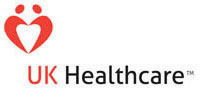According to research from PruHealth, the health insurer that rewards members for being health, 24th March is expected to have been the day most Brits fell off the New Year health wagon, making it the 2010 Death of the Diet Day.*

But while the average person may succumb to temptation by the 24 March, the intention to make long-term lifestyle changes rather than opt for short-term solutions is certainly there for many. 66% said the main reason for starting their new wellbeing regime is to lead a healthier lifestyle, and 43% are still sticking to their regime now, seeing it as an ongoing and permanent lifestyle change, rather than a celebrity-inspired, quick-fix fad diet such as the cabbage soup and baby food diets.
When it comes to sticking to resolutions, resisting the lure of sugary snacks is the biggest challenge for sweet-toothed dieters, with 43% rating this as the hardest hurdle to overcome. A further 34% struggle to find the motivation to go to the gym, and for 27% cutting back on alcohol intake is the real difficulty. This past winter being the coldest on record for 30 years has not helped either – 17% physically weren’t able to get to the gym or exercise outside, and instead found comfort in hearty winter meals at home.
Izabella Siemicka, Communications Manager, PruHealth, said: “The Death of the Diet day 2010 may be upon us, but really the key to maintaining a healthy lifestyle is finding a way of incorporating a nutritionally balanced diet and regular exercise into your everyday life on an ongoing basis.
“It’s really encouraging to see so many Brits are taking steps to change their health for the long-term. The cause for concern has always been when people take drastic, quick-fix measures that in the end can sometimes do more harm than good – physically and emotionally. We all need the occasional treat, and this can help keep up the motivation.”
Getting into shape and looking good on the beach was a big motivator for 29% of Brits who started a new health regime, and for 12% of women it was all about squeezing into a specific outfit for a special occasion.
Worryingly, it took the shock of a health scare to inspire 19% to take action and embark on a new, healthier standard of living. Meanwhile, 16% found getting fit and healthy has helped them through the tough recession.
Nearly one in five (18%) of 20-somethings admitted to ‘cracking’ within a fortnight, in contrast to 31% of 50-somethings who’ve managed to stick to their regime for the long-term. Regionally, for the second year in a row, Welsh dieters fell off the wagon first, with 18% throwing in the towel in the first week.
Twelve per cent of women intended to follow a new health regime, but never managed to kick start it into action, compared to just eight per cent of men.
Via EPR Network
More Healthcare press releases







